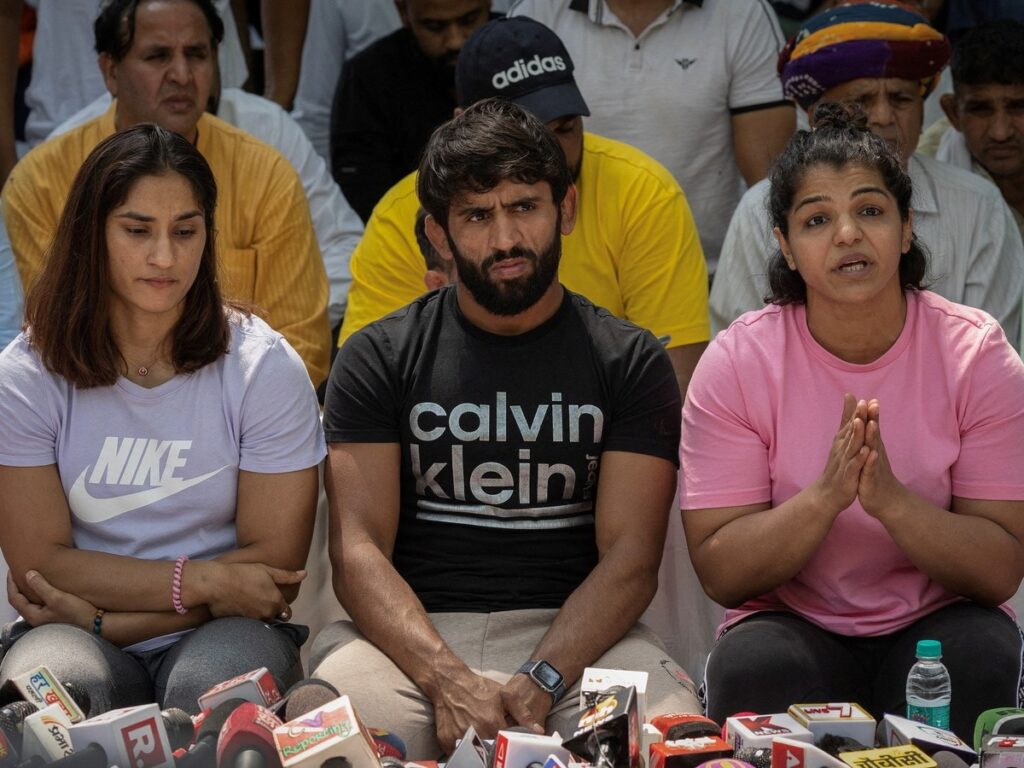In the world of sports, particularly wrestling, athletes often unite for a common cause. However, internal conflicts can emerge, potentially jeopardizing collective movements. Recently, Indian wrestler Sakshi Malik expressed serious concerns about her fellow wrestlers, Vinesh Phogat and Bajrang Punia, claiming that their actions have undermined the strength of the protest against Brij Bhushan Sharan Singh. This article delves into the details of this statement and the implications it holds for Indian wrestling.
The Background of the Protest
The protest initiated by Indian wrestlers is rooted in serious allegations against Brij Bhushan Sharan Singh, the president of the Wrestling Federation of India (WFI). Accusations include sexual harassment and misconduct, which have raised significant concerns about the safety and integrity of wrestlers in India. The protest, which gained considerable media attention, aimed to bring these issues to light and push for accountability.
Key Figures in the Protest
| Name | Role | Contribution |
|---|---|---|
| Sakshi Malik | Wrestler | Voiced concerns about the impact of internal divisions in the protest. |
| Vinesh Phogat | Wrestler | Activist for women’s rights in sports. |
| Bajrang Punia | Wrestler | Prominent figure in the wrestling community advocating for reform. |
Sakshi Malik’s Allegations
Sakshi Malik highlighted that the disunity among leading wrestlers has caused confusion and diminished the overall impact of their protest. She emphasized that collaboration and unity are essential for making their voices heard and achieving tangible results. Malik’s statements have stirred discussions around the importance of solidarity among athletes in fighting against misconduct and injustice.
The Impact of Fragmentation
When prominent figures within a movement begin to voice dissent, it can lead to fragmentation. This disintegration not only affects the morale of the protestors but also allows those in power to dismiss the concerns being raised. The lack of a united front can weaken the narrative and reduce pressure on authorities to respond to the allegations seriously.
The Path Forward
For the protest to be effective, it is essential for all involved to come together with a unified front. This unity can amplify their message and increase the likelihood of achieving the desired outcome, which includes accountability and reform within the wrestling federation. Strategic planning, communication, and addressing internal conflicts are vital for the movement’s success.
Conclusion
Sakshi Malik’s claims serve as a reminder of the challenges that can arise within collective activism. While the fight against alleged misconduct in the Wrestling Federation of India continues, it is crucial for the wrestlers to remember their common goal. By fostering an environment of teamwork and solidarity, they can enhance their chances of effecting change and ensuring a safer space for all athletes. The future of wrestling in India may depend not only on their individual skills in the ring but also on their ability to stand together and present a strong, unified front.
